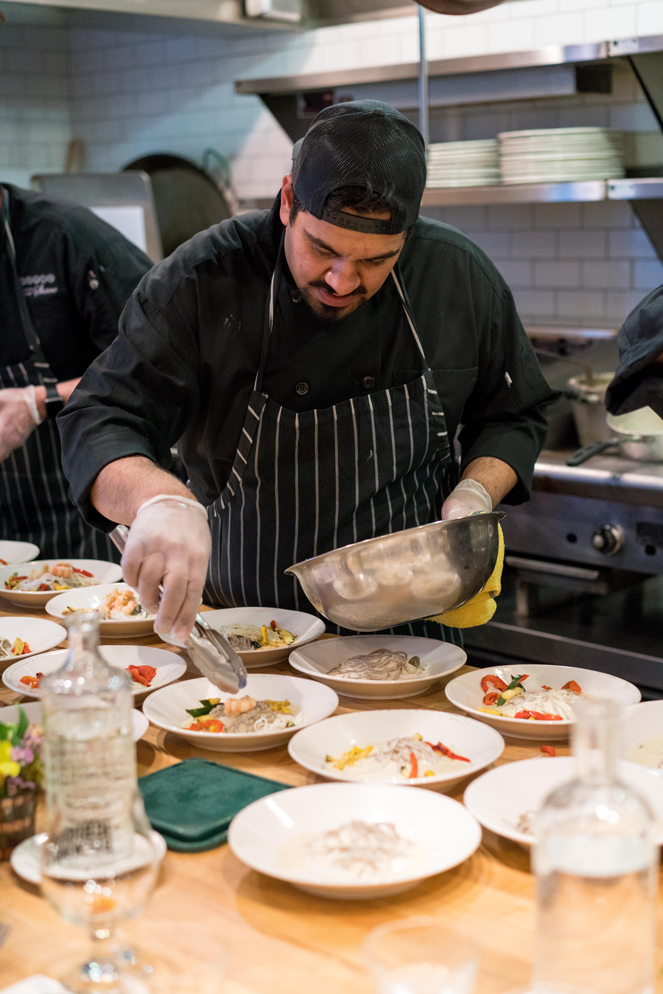xtraCHEF’s List of Support Resources for the Restaurant Industry
This article was last updated on April 3, 2020.
At xtraCHEF, empowering restaurant owners and operators is at the core of what we do. As the entire world waits to see how the COVID-19 pandemic will play out, we’re compiling an ongoing list of resources for Americans in the industry to consult during this uncertain time.
This list is a living document and will be updated as more resources become available.
Government Resources
The CARES Act, a landmark piece of legislation that outlines $2 trillion in federal funding to support the economic impact of COVID-19, was signed into law on March 27. The New York Times has a helpful FAQ for what this legislation means, and both Restaurant Business and Rally For Restaurants have outlined the implications for restaurants and those employed in the industry.
The Centers for Disease Control and Prevention (CDC) is regularly updating its general information page about the coronavirus. Here you can find the latest statistics, government response, and other guidelines for handling COVID-19.
As part of their coronavirus communications, the CDC has a separate resource offering interim guidance for businesses and employers.
Industry Resources
The National Restaurant Association is also compiling an ongoing list of resources tailored to restaurant owners and operators, focusing on sanitation and the food supply chain. The Restaurant Workers’ Community Foundation (RWCF), a non-profit founded by restaurant workers, for restaurant workers is also compiling emergency resources for those affected in the industry.
Gusto, a payroll, benefits, and general HR management platform, has also created a massive list of relief resources. Theirs is fairly comprehensive, offering both federal- and state-based sources for support.
Our friends at Toast have put together an excellent guide for how restaurant owners can support their staff during a health crisis, as well as a comprehensive guide to managing a restaurant during the outbreak. They recently launched Toast Now, enabling restaurants to quickly adapt to the new normal with commission-free digital channels for online ordering, takeout, and contactless delivery.

Finance
Operators and other employees may want to review the new guidance from the Employment and Training Administration about administering unemployment during the COVID-19 pandemic.
Under the guidance, federal law permits significant flexibility for states to amend their laws to provide unemployment insurance benefits in multiple scenarios related to COVID-19, including but not limited to:
- Employers temporarily closing their doors due to the outbreak, preventing employees from working;
- Employees who are currently in quarantine but expect to return to work after it ends; and
- Employees who must leave their employer due to exposure risk, infection, or family care.
The Small Business Association will be offering businesses up to $2 million in assistance through Economic Injury Disaster Loans. Click here for more information about how to apply.
Nonprofit funds are available for relief, too:
- COVID19 Crisis Relief Fund from the RWCF
- Bartender Emergency Assistance Program from the USBG National Charity Foundation
- Emergency Coronavirus Tipped and Service Worker Support Fund from One Fair Wage
Healthcare
As of March 18, President Trump signed the Families First Coronavirus Response Act into law, which will offer free testing to all Americans, no copays or deductibles needed. It also offers a paid-leave benefits program to businesses with under 500 employees, though it’s currently unclear how employees can sign up.
Medicare currently has the most comprehensive coverage for coronavirus-related needs. They’ll cover all COVID-19 lab test expenses, medically necessary hospitalizations, and, when available, vaccinations. Most private insurers have committed to waiving the cost of a COVID-19 test but have not yet announced or approved any coverage for those sickened by it.
Though everyone is most concerned with physical health right now, we strongly suggest making sure your mental health is in a good place during these trying times. The National Alliance on Mental Illness (NAMI) offers free, 24/7 support; message boards to find community in a shared struggle; and a resource guide for coronavirus-specific concerns.
Childcare
With schools going virtual for the rest of the semester, there are more mouths to feed at home. If coronavirus closures are making it more difficult to put food on the table, check in with food banks like Feeding America to see how they can support families in need during this time. They’ve already started to distribute emergency food boxes and offer no-contact methods of pickup.
Many school districts, especially in major metropolitan areas, are offering school lunches for pickup as usual. Please contact your local district directly to see if they’re offering this benefit and, if so, how you can obtain the meals.
Recognizing this is a difficult time for everyone, it’s especially important to communicate with kids about why so many things in their lives are suddenly different. The CDC offers suggestions for how to talk to children about COVID-19 if you aren’t sure where to start.

Community-Specific Resources
Local communities are banding together to help support each other in this time of need.
Sharing Excess out of Philadelphia takes food waste out of grocery stores and restaurants and puts it into the hands of the hungry. They’re currently collecting from restaurants in the Philly area are shut down by order of the Pennsylvania governor. If you are an owner or operator in the area, you can request a pickup so the contents of your walk-in don’t have to go in the garbage.
Cooks Who Care is dedicated to the well-being of the food and beverage industry. Also based out of Philadelphia, this non-profit is hosting their own ongoing, collaborative list of resources for industry workers.
The Giving Kitchen emerged out of Atlanta in 2012 as a response to a chef’s stage-four cancer diagnosis. Since then, TGK has helped over 4,000 other industry workers in crisis and are continuing their work during the coronavirus outbreak by offering financial assistance to those in Georgia.
If you have a resource that you’d like to share with the rest of our community or feel that vital information is missing, please reach out to us on one of our social channels! We’re here, and we’re listening to what you need.


